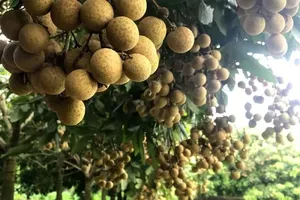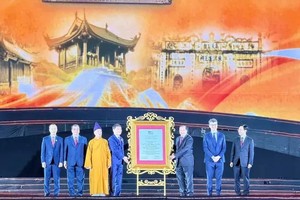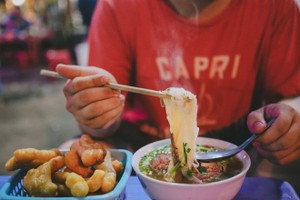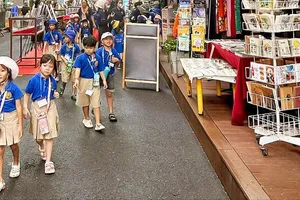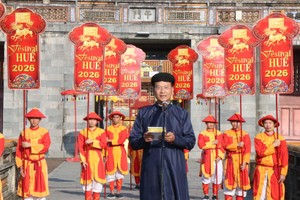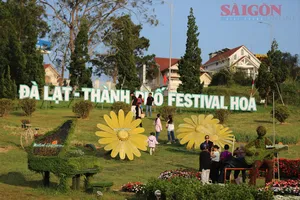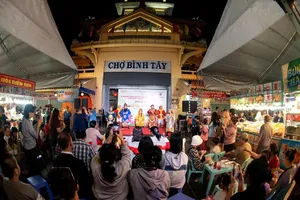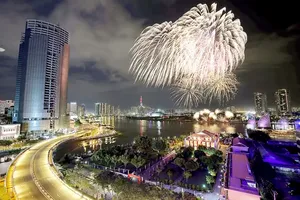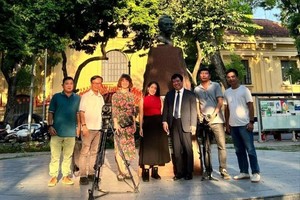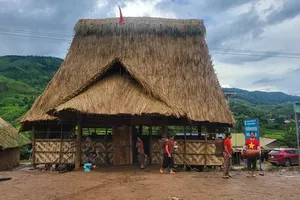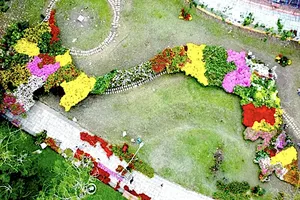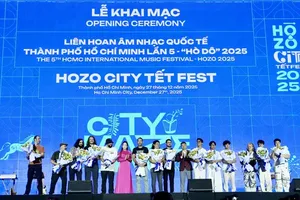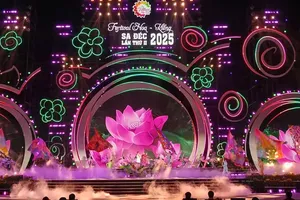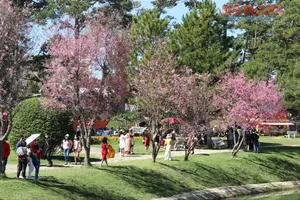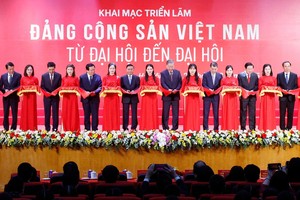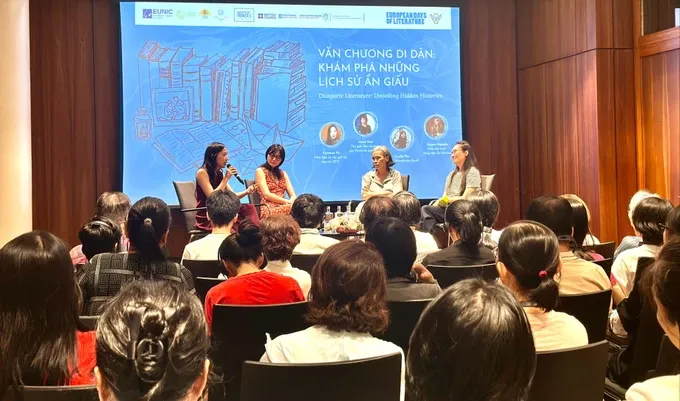
The 2025 European Literature Days commenced in HCMC in early May with two illuminating literary discussions. “The Voice Behind the Author: Literature and Cultural Flow” took place at the University of Social Sciences and Humanities (Vietnam National University – HCMC), while “Migrant Literature: Discovering Hidden Histories” was hosted at the German House on Le Duan Street in District 1. Both events garnered significant interest, drawing large audiences, particularly from the younger generation.
Attendees to these discussions had the opportunity to engage directly with Vietnamese-origin writers, gaining insights into their lives and literary practices. Featured authors included Cecile Pin, Khue Pham, Vanessa Vu, Nuage Rose (Hong Van), and Anna Moi.
While the first three may be less familiar to some domestic readers, Nuage Rose and Anna Moi have a readership base in Vietnam. Nuage Rose’s works, including ‘Ba ang may troi dat xu beo’ (Three drifting clouds in the land of floating plants) and ‘120 ngay - May thi tham voi gio’ (120 days - The cloud whispers with the wind), have been published by Tre Publishing House.
Similarly, writer Anna Moi frequently returns to Vietnam and interacts with readers; her novel ‘Noc buom’ (Butterfly venom) was also released by Tre Publishing House earlier this year.
Despite differences in age and generation, a shared and profound yearning for their origins unites these authors. For second-generation overseas writers like Cecile Pin, Khue Pham, and Vanessa Vu, the intrinsic need to understand themselves and their roots serves as a constant, compelling drive.
“I grew up with so much I didn’t know about my family, my origins”, shared author Cecile Pin. “Upon reaching adulthood, I began to bridge this gap by immersing myself in books and newspapers, gradually weaving those fragmented stories together. That process is precisely why I wrote the novel ‘Nhung linh hon di lac’ (Lost souls).”
While Cecile Pin found a connection to her roots through Vietnamese cuisine, writer Nuage Rose chose the path of language. Her debut work was entirely in French, but for her second book, she made a conscious decision to write in Vietnamese. This was, in part, an effort to “safeguard” the words and phrases of 1980s Hanoi that are gradually fading today, thus forging a link with her heritage through linguistic preservation.
Writer Anna Moi (real name Tran Thien Nga, born in Saigon in 1955) moved to France to study at age 18. Unlike many other writers, Anna Moi asserts that she has never written from the perspective of someone living far from home; Vietnam has always been deliberately present in her literature.
Though she has resided in numerous countries, including France, Japan, and Thailand, her homeland remains an unbreakable connection. This bond drew her back to live entirely in Vietnam from 1992 to 2011. Notably, her debut novel, ‘Riz Noir’ (Black rice), was directly inspired by a visit to Con Dao and an encounter with a former Con Dao prisoner in HCMC.
“From 1992, I returned to Vietnam and immediately found the inspiration to write”, Anna Moi expressed. “At that time, a French publisher commissioned me to write about life in exile in France, but I declined. Why would I write about France when I was living in Vietnam? I have never considered myself an exile, so I never intended to write about that experience.”
During the exchange program themed “"The Voice Behind the Author: Literature and Cultural Flow”, Vice President Dr Phan Thanh Dinh of the University of Social Sciences and Humanities (Vietnam National University – HCMC) articulated that the profound essence of literature lies in the human journey to discover one’s own voice.
When authors craft a narrative, whether fictional or autobiographical, they are intricately weaving invisible threads connecting memory, language, fate, and identity.
“Today, we have the privilege of hearing voices from many horizons – France, Germany, Spain, England… but crucially, these are also inherently Vietnamese voices”, stated Vice President Phan Thanh Dinh. “They carry within them a journey of cultural transformation, the journey of writers who have traversed not only geographical space but also the deep dimensions of spirit, emotion, and family memory.”
Following the events in HCMC and Hue City, European Literature Days 2025 are now taking place in Hanoi from May 8 to 11. The capital’s program features notable sessions including “The Novel Writing Journey: From Conception to Completion”, “Integrating Journalistic Techniques into Novel Writing”, “Sources of Inspiration: Culture, Experience and Words”, and “Graphic Novel: Comic Book or Picture Book?”
